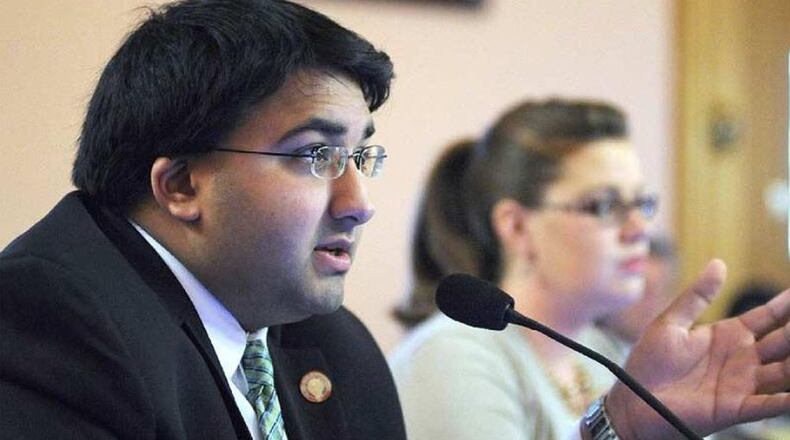Body camera video is generally a public record, according to the bill, except if it’s taken in a private home or business, involves the victim of a sex crime or is part of a confidential ongoing investigation.
Related: Lawmaker proposes keeping some police body cam video private Ohio Fraternal Order of Police lobbyist Mike Weinman said the police union sees no major issues with the bill and is happy to see that personal conversations among officers that aren't related to police work will not be considered a public record.
ACLU of Ohio lobbyist Gary Daniels said the civil liberties group is also backing Antani's proposal, saying it strikes the right balance of keeping government open, holding police accountable and protecting personal privacy.
“We think this proposed bill balances all of that quite well,” he said.
Ohio News Media Association Executive Director Dennis Hetzel said the association will review Antani's proposal but "the bill does a better job than some other states in preserving the basic presumption of openness that should attach to these records so there is accountability and transparency while dealing with the legitimate privacy concerns that these devices create."
Columbus Mayor Andrew Ginther appeared with Antani at a press conference Monday in support of the bill. By the end of 2018, 1,300 Columbus police officers will be outfitted with cameras. Other Ohio cities are testing or using body-worn cameras, though some cities have yet to take that step.
Groups have pushed for body cameras as a means for making police officers more accountable. But while the cameras are becoming more universal, the question of which footage is releasable from those cameras is far from resolved.
Related: Body camera footage shows shooting of Ohio news photographer by deputy In a separate issue, the Ohio Supreme Court ruled in December that police dash-cam videos are public records but that portions of the footage may be withheld from disclosure while investigations are ongoing.
Ohio’s open records law presumes that government documents, including photos, videos, audio recordings, databases, spreadsheets, shall be disclosed to the public upon request, unless they fall under an exemption. Over the years, lawmakers have shielded more records from public disclosure by adding exemptions.
Antani’s bill, which will be introduced in the Ohio House this week, exempts from disclosure body cam footage that captures:
- Dead bodies or grievously injured bodies, unless the death or injury was caused by an officer or the decedent's executor consents to its release;
- Dead or grievously injured first responders, unless the decedent's executor or injured person consents to its release;
- An act of severe violence against a person or first responder. The exemption would not apply if the violence was done by a peace officer or the injured person's consent is obtained.
- Nude bodies, unless consent is obtained.
- Identifying information about alleged victims of sex offenses, stalking or domestic violence.
- Personal information about someone who is not arrested, ticketed, charged or issued a warning by police.
- Obscene material.
Antani said the exceptions in his bill will help protect privacy rights while also providing transparency and accountability.
About the Author

